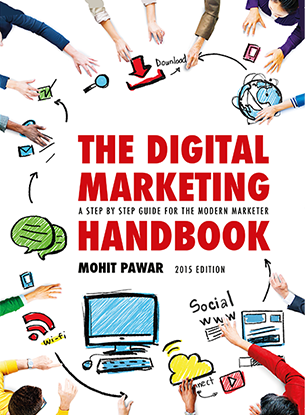 Businesses have projects to finish. Individuals have tasks to accomplish.
Businesses have projects to finish. Individuals have tasks to accomplish.
Developers need to make products. Scientists need to do research and help humanity.
The thought is simple, you think and act. Then why do so many projects miss deadlines. Professionals end their workdays with many unfinished tasks on their to-do lists.
The challenge here is over-thinking. If you think — too much — before you act then chances, that you will actually act, are bleak.
Look at homemakers; they accomplish so much in a day. Think about sales people they don’t always do as much they are expected to do, still they do a lot – calling people, meeting them, getting orders and then interacting with various departments to make sure that what they have sold is delivered to the buyer. They are able to do so much because they have less scope to over-think than a grey cell worker.
Over-thinking coupled with constant digital interruption are two of the biggest culprits that keep people (working on a desk) away from real action.
Though and action
Whenever you are given a task or you take up one — give yourself some time to think. If it is a big project then give yourself an entire day or a week if the need be, but beyond that make sure that you focus on action. Set milestones and measure your progress but most importantly act on what you have thought about.
Thinking is an important pursuit and almost always should be done but over-thinking does not help your cause. It can make you confused, less productive and affect your ability to deliver.
Decision
This is one important part of the process that we think a lot less about.
After having thought about an idea, you need to decide that you are ready to act. When you take a decision you tell your brain that you are ready for any consequences that may appear after you take action. A thoughtful decision makes sure that you will devote yourself fully to the task; there is no holding back.
To take a decision you need knowledge. Acquiring knowledge precedes thought and decision. When you are knowledgeable about a situation you will feel confident about your decision. You will also need courage to accept that whatever is the outcome you will be fine with that.
Take the case of a start-up entrepreneur; she needs to understand that the end result of the action may be success or failure — any of these. Though chances are that thoughtful action will result in success; but markets may turn its back on her. There may be nothing wrong with the product and plan but the timing may not be right. Think about a player in real estate market during sub-prime crisis. Before this crisis struck everything looked right then big bust happened which took down a lot of individuals and business — many of them huge.
The product may be ahead of time or not relevant for the buyers. I wrote about knowing your consumers better by getting in their shoes. Try this for creating a relevant product or service.
So think, decide and act. Act often as per your role. Meet or talk to people if that is what you need to do; create mock-ups, and ship alpha or beta version if that is your zone. If you are out to blog then think about your writing topics, plan an editorial calendar but most importantly write.
The key is converting your thoughts into action. I have shared earlier that the best way to think is to think (on or with) a paper or a recording device. When you act on your thoughts you will make sure that your work goes out under the sun — where people can experience, give feedback and help you improve. It will help you make name, fame, money whatever you are out there for.
What is the role that you work in? How do you bridge the gap between thought and action?



Pingback: Co-Founder: Good or Bad for Your Venture? How to Move Ahead Without One. | Mohit Pawar . com
Pingback: 11 Simple Ideas to Excel at Work - Mohit Pawar . com